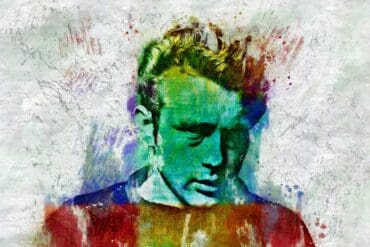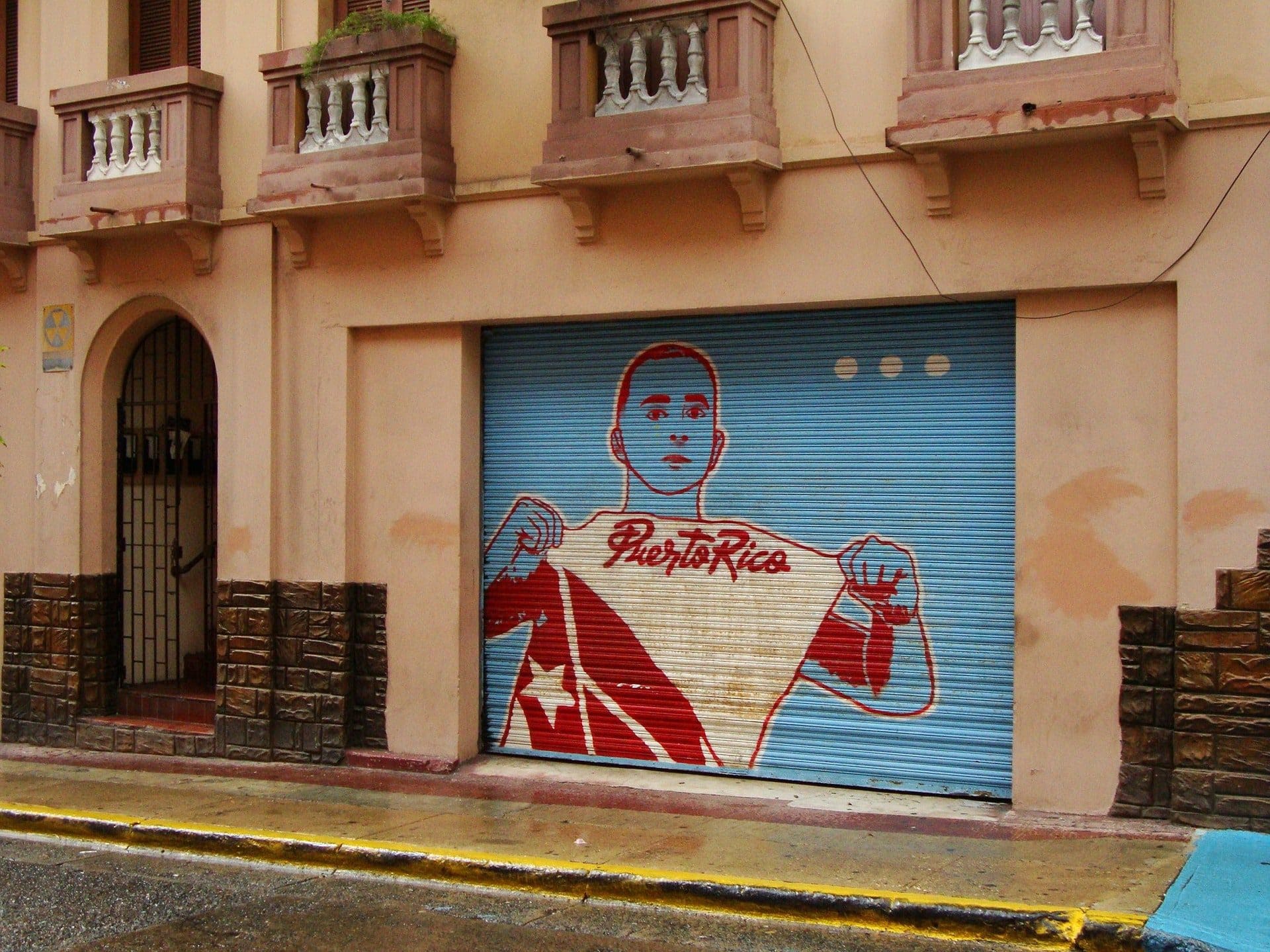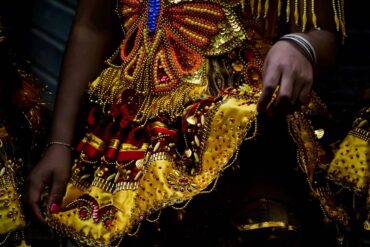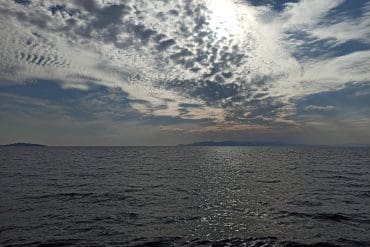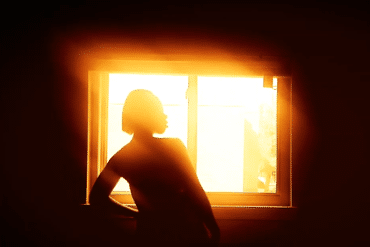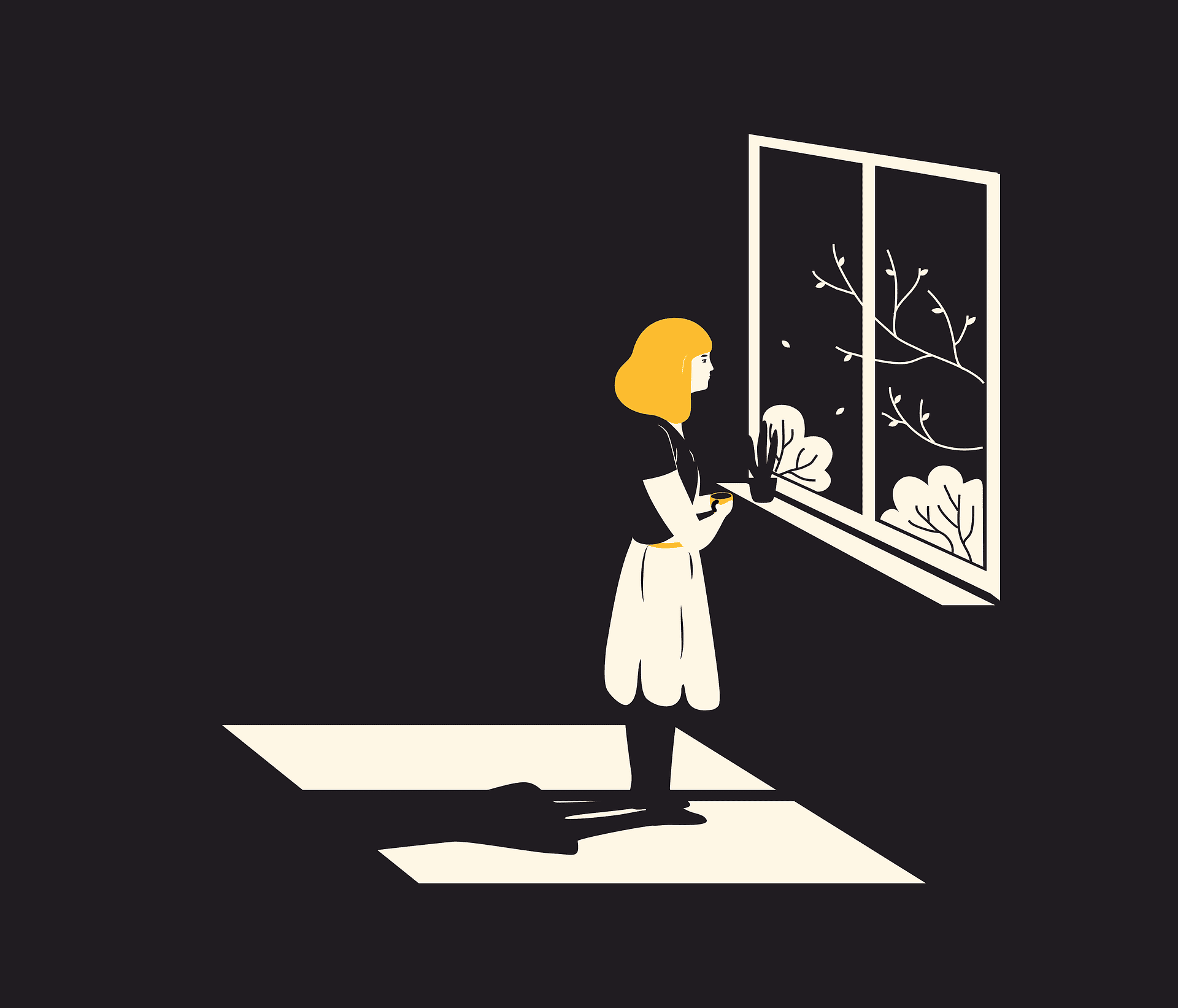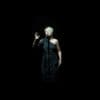Autoethnographic Fiction: Out of the Rain and Sun
Author’s Memo
This autoethnographic story is about mental illness, specifically bi-polar disorder. The two main characters are doppelgangers, one representing the depressive and the other the manic phase. Of course, both individuals struggle to exist within their shared society. When they come together, there isn’t harmony, but mutual dislike. I’m a realist.
One individual worships others (specifically women) as greater than himself. He sees himself as worthless, incapable of measuring up to being even so much as human. He blames himself for failed relationships, for his inability to express his needs and wants. He is hopeless, near suicidal, and wavering between languishing in the moment and reminiscing desperately in an effort to reinvent the past. His way forward is uncertain. He is perhaps a victim of his own inability to experience grief in a healthy way.
The other individual plays the blame game. Everything wrong with his life is the fault of someone else. He denigrates women, insults his professional peers. He believes himself to be emotionally and intellectually superior. He rationalizes, always comes to the conclusion he is right and everyone else is wrong. He is, in short, what has come to be now called a narcissist. His rationalizations, though funny and, at times, astutely on point, are spiteful and indicative of a worldview that places himself above others, specifically those who don’t see things the way he does. I think this notion is exemplified in the scene in which he pays for the use of a telescope at the lakefront, and then uses it to scour apartment buildings for people having sex. He considers these people beneath his ability. He sees them as they really are, as they cannot see themselves, because they are caught in the struggle of simply living (they are a literal interpretation of Dante’s fiery whirlpool). His observation of these individuals manifests in self-hatred, because his choice of partner didn’t measure up to the image he embraces of himself. In short, he’s never satisfied with anything, because there perpetually exists someone else to blame his problems on. If Donald Trump were penniless, he would be this man.
When the two of them come together, they never actually meet. Rather, the man representing the manic phase observes and punishes the other, the one who represents the depressive phase. Together, quite by chance, they have found the key to their mutual manifestation of personhood: Essentially, they become sun worshippers, they cleave onto something greater than themselves in order to refocus on the world from a perspective that removes them as the center of their existence. It is Lake Michigan and the sun and the waves, and the sand that can hold its shape when written into with one’s finger, and the surf that washes away the contents of one’s dry heave. It is the observation of another who is truly pitiable, but in the same way, other obsessed, leading to a boot in the backside that is really, in a sense, kicking himself, reminding himself he is not the only soul in existence, and disgustedly, though fervently, acknowledging his own pain as witnessed in the pain of another. From an even larger perspective, this story says something about our beliefs, how we come to see ourselves based upon the things we choose to value either in a positive or negative way. It has always been one of my favorite pieces, because it places its characters within the larger context of the environment that has created them, and lets them see at the very end, just a fragment of light allowing each to view himself in perspective.

Anonymous woman demonstrating burning paper sheet with title by Vickie Intili from Pexels
Out of the Rain and Sun
He is sitting. Out of the rain. Under the roof. Before he was waiting in the rain. Wet. And then he went through the building. Upstairs. Downstairs. Through the corridors, empty this night. The stale cool air and the rooms with furniture. Down the stairs. Out, under the roof to discover its raining.
He sits on the stoop. There the wind meets him raining. The wide stone walk he shoveled last night at least a hundred times. Under the street lamp. Not many years ago she worked here. It doesn’t matter she deserted him. He sits under the roof. Concrete. Honeycombed. Twenty feet wide about. Lighted. A roof of concrete underneath which he sits. He would be visible from across the street. If she were watching, she would know he was crazy. He is crazy.
He sips his cola and reads eleven pages of his book. He closes the book. He cannot read. But he knows the book is necessary. Once the cup is empty, there is no longer the feeling it is necessary. He would feel guilty if he threw the book away. On page eleven, the part about the dog and a new beginning. Always a new beginning. He is sitting. Out of the rain. Under the roof. Which juts out from the building. He just left the building. Water spilling from the weepholes–no downspouts–and the stuccoed columns dark with wetness in front and light with dryness in back. The front dispels the light and preserves the darkness. The back dispels the darkness and preserves the light. Under the light he would be visible, if she would look for him.
The wind kicks up a mist. Not enough to bother him. Sips his cola. A warm wind. Warm rain. Uncomfortable. Enough to keep his shirt from getting dry. Not like before, when he walked in the rain, soaked. Uncomfortable.
Stopped on page eleven. It would be wrong to throw the book away. No description of the size of the dog or his spots.
The rain hits the wide stone walk he shoveled at least a hundred times a hundred years ago last night. He never met her. She did not desert him. She does not exist.
On the ground behind the bushes, a beer bottle and a pamphlet with a quote from the Bible noting chapter, verse, lines. Obviously some drunk believes in God. What if he threw away the book?
He finishes the cola. Now the empty cup. The cup? If he crushes the cup, he will have to throw it. He cannot carry it if it is crushed. It will weigh too much in his hand. If he does not crush the cup, he will have to carry it. But it wants to be crushed, this cup, before it is thrown, as its emptiness is heavy. If he throws the cup away uncrushed, he will sin. He will not comply with his obligation as a crusher. But if he crushes the cup, it will be impossible carrying the book and the cup as well. The cup and the book are too much weight.
The rainwater trapped in the thin leaves of the bushes glistens under the light which fans out from below the roof. Another light pole not far away against which he can see the rainfall. To his right, past the bushes, he sees white vans parked beside the loading dock. The rain drums against metal and runs in crooked lines down their sides.
Water always gives in to gravity. Water should rebel. Lash out against its oppressor. But what would happen after the loss, or the victory?
Bushes on his left also, a window. He sees a woman cleaning the cafeteria. She bends, sweeps under a table. She stands. Examines the contents of her dust pan. Does she know him? She was his supervisor. Not too many years ago. No, this is another woman. Another fatter different older woman. There are too many women staring into dust pans.
A puddle in the stone walk. Not so wide as shoveling used to make it seem. The reflection of the streetlamp in the puddle a glowing orb and raindrops making hundreds of tiny white circles. There is no safety under this light.
Minutes later. Less circles, and he wonders should he walk now. He decides now. He starts to rise, can’t. He isn’t sure. Should he go or wait? The rain might completely stop in a minute. But it’s late. Tomorrow he will get up early, meet the sunrise. Through a break in the clouds, just barely sunlight on the western horizon. Why do storms go West to East? Familiar buildings break the horizon, all of their windows dark. It is Sunday. Is she there waiting in the dark? There may be others, all of them invisible behind the black windows.
A small dog with spots running down the center of the empty rainsoaked street. He closes the book, this time with finality. What’s the point except to fill the job with applications when he has no job? But the book is necessary.
He sees the hundreds of tiny white rainstrikes in the puddle. He remembers the snow. Sometimes more than a foot deep. Sometimes only a few inches, but heavy with water. Sometimes light as angel hair, still he shoveled and salted. Sometimes bitter cold. The snow would freeze. They won’t slip on salt. She won’t slip, not on salt. Salt holds them down, holds her.
In the western sky, a little light on the horizon, like an egg, an egg of light. East to West the sun. And the storm West to East. While the sun races to meet him tomorrow at the lake.
Morning over Lake Michigan. He meets the sunrise. The sunrise over an angry Lake Michigan. The lake angry always after rain. Stones the size of his fist thrown onto the shoreline. Stone after stone. The angry lake pummels the shoreline with stones. Tomorrow after the storm meanders East. When the lake is angry. Far out over the water, on the eastern horizon, the sun rises. The lake appears deep blue when the storm embellished her. The angry lake throwing rocks at the spokes of his bicycle tires. He rides his bicycle to the lake. At the edge of the water, feet soaked, the bicycle between his legs. He used to work two hours after sunrise.
Now he stands under the roof. It rains harder. Thunder. Lightning. The hollow metal drum sound of the vans. The vans beside the loading dock. Sheets of rain.
To the right, under a tree, a woman crouches. It’s not her. Partially concealed. The darkness, light reflects her raincoat. She flinches. She will not come under his roof. There’s no shelter with him. She won’t risk him even with a light. She thinks he’s crazy. He is crazy.
Partially concealed by the tree. But then he establishes the raincoat. How long has she been there? Did she see or hear before? Has she watched him? Does she think he’s crazy?
The rain slows and she runs. Her footsteps clap in the wet almost empty street. Rain the little spotted dog runs center down the empty street dog dog. No. The little dog “with spots.” He checks the book. “With spots.”
He never knew her. Never met her before. But that’s an old beginning.
In fifteen minutes–his approximation–a motorcycle, then a bus. A man and a woman laugh, walk uneasily umbrellaneath. He won’t go out into this rain. He’ll wait here now all night, concrete entombed. Cocoon. Tomb. Cocoon. He does not want to have waited this long for nothing. Something must happen soon. God promised Noah rainbows. And no more ark building.
Light a sliver on the western horizon. A rip in the black skein. The morning just before nightfall.
Sometimes a hundred years ago last night.
When will it stop raining? Now it rains harder. God lied to Noah. Lied about the rainbow. Lied about no more ark building. Forty days and forty nights. It’s coming. Scarcely thirty-nine left. Many fewer days than since he’s known her. First his feet, then his legs, then the whole of his body. The roof sinks. Or water rises, swallows it. Immersed in cold water. That much water is cold. Not just uncomfortable. The mist carried on the wind sweeps into his face. His wet shirt wet. Nothing left but to go out into the rain. Or stay? He can’t decide. He begins to hate the cup.
God lied to Noah. Lied about the rainbow. Lied about no more ark building. Forty days and forty nights. It’s coming. Scarcely thirty-nine left.
He remembers the first time. A plastic bag and rubber band. Then Basement Noose. Open Oven Pilot Light Blow Out. He kept secret. Why tell unless you finish it? Mom and Pop, he the window and gas out the pilot lit before they’re home. He was a coward. Why not leave for good? But his brothers and sisters, if they found him?
Once he fell. The inflatable raft overhead and into deep deep water. Did he jump? No. But fell a fortuitous flop. Before he learned to sleep the steel away–this is what he learned with age and struggling back, it could be stolen–he fell and sank before. Down ten, twelve feet underwater. The raft bobbing on waves. The light grew hazy over. The raft, a solar eclipse. The unspeakable need to sleep: He had fallen for this reason. Continued to fall for this reason. Then pressure grew inside his head. Pressure and his head wanting an explosion. Standing muddy bottomed. Center. Crouching muddy bottomed, mud toed. Felt the mud reach for him. Trying. He a fossil in waiting. Groped walls. A sinkhole. At the same time jumped, pulled through the water up. Would have stayed, but for pressure. Straight up the bull’s eye, and a comical dart targeting a raftabob. Up where the light clears. The explosion of surface and raftabob lit. Breathe and scream and thrash arms, one hand grabs the edge of inflatable and pull. They heard, rescued. Sheepish. Like a man jumping barrelout from under applebobs with nothing in his mouth. His father rescued. Not enough. Who would love? Not his father. No one. Not his father. No one would love his father.
He can’t end it now. The pressure. He’s afraid. The want to explode. The crush cup. Tiny skull and inside, inside death. Tiny skull–the white. He can’t step into the rain. He can’t throw the book into the bushes. He has no implement of self-destruction. He has only the book and the tiny skull. Nothing. His pockets. Keys, a few coins. Handkerchief. Wallet. He threw the knife away. He threw the knife. Chicken. He’ll wait here all night then.
If he does not leave now, who will greet the sunrise? Can anyone else?
Deep blue farther out. Brown close to shore, stained with soil. Rocks as big as his fist. Pummeling the beach, rock upon rock. No knife in his pocket. Nothing to perform the deed. Nothing to let the water out. Nothing but the heart. Choking. Pressure. Must have been somewhat less despondent, or thoughtless, throwing it away. He can’t remember. Threw it like a rock someplace.
What’s left to do? Out in the street, walking, they under the light, he sees. Men and women see him. Hundreds, not thousands, tiny white circles. The reflected orb puddle of the streetlamp. Should he go now? They fold umbrellas. They walk and talk. He could try to read. But not in this wind. He could go behind the building door, but that in shadow, and soon the guard will come to send him out. What if she saw him now. She’d think he’s crazy. He is crazy. He waits. Perhaps it will rain forever. At least a hundred…Maybe God did lie to Noah. Though Noah would have to believe God after the flood, ark, rainbow sequence. Maybe God intends to drown us out of existence. Wouldn’t be the first time.
II.
The daisies bloom in their uninhibited profusion along with all the other varieties–I am not a horticulturist–so that to look on them gives one the impression, indeed there is something to be said for life, the triumphant excess of Nature, the perpetuity of abundance. But sometimes I am a stone. I will not say how horrible it is. Willows sway by the lakeside in the warm spring breeze, but what are they to me? And what are the ducks that surely swim this time of year in the willow’s shadow, looking to mate? What is the lake itself? I am not easily dissuaded from my moody attitude by the things that made Wordsworth forget that he was human and aspire to godhead. I am not a man of normal contrivances. It’s quite capable, when we think of him from a distance, separated by time and space, to put Wordsworth in his proper place and go beyond. But to where? Back to the books! How young Wordsworth would have hated: to know his early poetry drove men back, grumbling and spitting, back to scorn, to puking Literature. Yet, I abhor all scholarly attempts to normalize the exploits of my past and present brethren–the writers–by categorizing, or by outright inventing ribald tails of broken-hearted housewives (for such is my impression from my reading of Dorothy’s journals) or of sexual misconduct substituting for the Muse. No, I’m sure it springs from some much deeper well. Herein I must confess I’ve dipped my wick into a few odd candle molds, neither of which is disposed at this time, due to my abhorrent mistreatment of them (it is always some abhorrent mistreatment of someone or something) to renew said intimacies with me, my wick. Oh, beloved candle molds!
I saw flag-waving little Betsy in the library just a couple of nights ago, cringing twixt the book shelves as if they could substitute for the warm sheets of my featherbed. How she did loath me–but they always loath that which they cannot possess–in return for my loud smile and louder greeting which bent more than a few studious heads. There she was, little flag-waving Betsy: identified for all my colleagues, starry eyed. And she knew (nobody had to tell her) what my colleagues thought about her. Wench! She backed away, down the library’s center aisle in such an obsequious manner that I might, if I’d conceived it, imagined Alfred Hitchcock filming her retreat, finally tripping over a little baby boy and spilling books, hundreds of books onto the floor as she sat like a lump, the little boy between her knees. Oh, lucky little boy! And then my crowning glory–to stand over her, help her to her feet; to pick the books up one by one off the floor and hand them neatly pyramid piled back to her; to kindly say, “Here you are, my dear. I hope you haven’t hurt yourself. Are you still sore? Oh, let me look at that.” Far be it from me to dissuade any woman from attempting to disprove through the interpretation of literature her status as candle mold. Though, in my opinion, such an undertaking would inevitably serve only in solidifying said analysis. Thus we return once more to the rock metaphor, or at least its hardness, but I am only a rock sometimes.
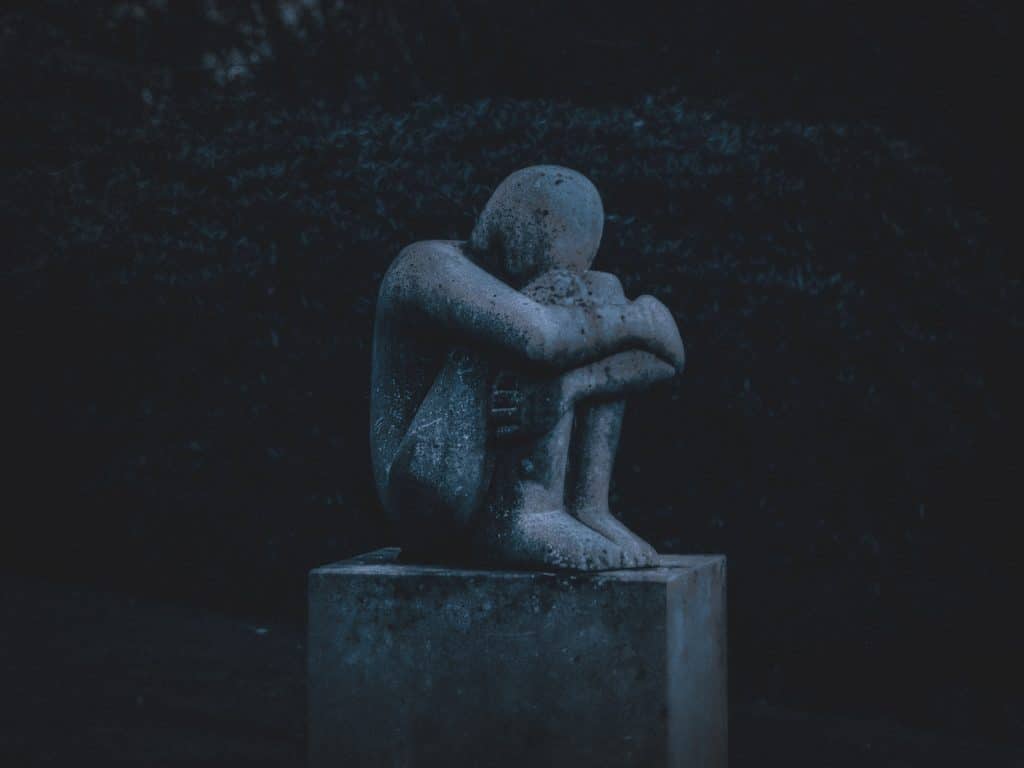
Loss – A sculpture by Jane Mortime by K. Mitch Hodge from Unsplash
No doubt many of you will be happy to learn that the library became a den of snickering deriding Pilates the very moment the fallen woman had departed, not without issuing a rather scornful reproach of my past and present conduct, I might add, so that the end result was she escaped relatively unscathed (probably carrying with her still one or two dead molecules of mine frictioned passionately from my person). I, meanwhile, was left to face the unforgiving judgement of Hoppel and Kroatz: two of my esteemed colleagues, both of questionable intelligence, but nevertheless formidable in their collective yaw. What a gruesome man you are, said Hoppel. Kroatz interjected, perhaps a brothel would be a better place for you than a library. You don’t understand, I tried explaining, she threw a casserole at me! But once Hoppel and Kroatz have begun to disassemble one’s assemblage, the process is never-ending. Hoppel: He is a ghoul. The purpose of his study is so that he may beguile women. Beguile them and deflower them. After which he reveals to them the depthless emptiness of his conscience, and they are left to grieve perpetually the loss of their maidenheads. Kroatz: I am here to warn you this man is a fake. Everything he has written is a lie. We are here, in the library–I with my Dostoevski and a complete volume of Shelley’s prose; Hoppel with his deconstructionist text concerning an abridged version of Blake’s complete works–to tell you that this man not only has no power to convince, he is in fact a perpetually clumsy murderer of English verse in the guise of a man of letters. Ignore him, for he has nothing to say. Hoppel: He will tell you he was mad. Yes. We were all mad at one time. And our madness is in fact the subject matter of most of our communications. But he is no different from any other madman. His illness is not in any way exemplary. Kroatz: He is a tired character out of Hardy. You don’t believe me? Wait till he turns to religion as a means of rationalizing that which he can’t understand…See candle molds…Hell, see candles!
So the rabid dogs rip and chew their rancid kill: they who know nothing of flying casseroles. Unable to dodge her unrelenting barrage directed at my not altogether ugly face, I had to forcibly relieve her of her key, leave her like a pile of old clothes sitting with her back against the door to my apartment. It was impossible to sleep that night because of her incessant wailing. Naturally, the police arrived: the neighbors had complained, compiled, in fact, a list of complaints. And I told police I don’t know her, had never seen her before. I wasn’t lying.
The world of wants is composed of the repeated phrase, “If only…” And the composite of all the sentences beginning with these two words is the world’s most boring story. Self-pitying lines communicated by people who have reached their plateau of intelligence, and listening to them, one realizes that theirs is indeed a pitiable vantage. “If only we could rise above,” these people seem to say. But they can barely rise. To rise above requires a consciousness. As for me, sex is something I will never again turn to out of desperation. Sun worship: to be one with the Transcendentalists, specifically Emerson; to exercise forever the glorious virtues of solitude as expounded in Virginia Woolf’s The Waves; these are the things in life to which I now aspire.
I only began worshiping the sun yesterday. No, actually, it has been the whole of my life that I have worshiped in one form or another that source of warmth and light, that by which we define the day. I feel a kinship with the Druids, with American Indian folklore. But I am not a madman: I have merely, in the sense that Coleridge could best understand, begun to see.
The following is the story of how I became a worshiper of the sun, of the Transcendentalists, of solitude, in short, of ideas.
As it so happens, I was feeling very sorry for myself. I was comparing myself to Humbert Humbert without his Lolita. The notion of self-aggrandizement in the form of masturbation not at all out of the question, but in fact more and more prevalent (I thought to myself, “If Camus’ narrator could rationalize it in The Stranger, why not I?”) but at the same time the same notion seeming more and more like self inflicted punishment–mourning if you would, when the loss of her should be a cause for celebration, I decided to go, even though it was cloudy and windy for this fine springtime morning to which I make reference, for a long walk along the beach. Knowing full well the sort of self-characterization I was taking upon my person, I set out. I simply put them out of my head: these thoughts that I was silly and stupid and that no good could possibly come from a walk in the fresh air when what I wanted was a good hour at least of animal lust. And, in fact, as soon as I stepped out of the door to my apartment building and felt the wind and downturned sunlight on my upturned face, I knew I was in my element. The trees swayed in a friendly sort of way. The flowers shivered and blushed up at me when I looked down on them. The street itself had just been swept clean by the street sweeper. The very atmosphere seemed to be accepting me into its bosom as if I were some prodigal son finally returned after a long and regrettable absence. I looked about. Surely Chaucer was hiding somewhere in this nostalgic atmosphere of beauty and mystification. Surely Chatterton was with him, that wonderful boy, and together they were, well together, guiding me from my prison of scholarly illusionist endeavors to the Holy Land of the Sublime. I felt their presence looking down upon me, or rather out at me, since, in this new world, there was no relationship between space and dimension. There was no up, down. There was merely out. Out to Lake Michigan: That was my destination. But in order to get there, I had to suppress a powerful desire to bend my knees and give thanks for this, my liberation, my ascension to…to what I could not say.
As it so happens, I was feeling very sorry for myself. I was comparing myself to Humbert Humbert without his Lolita.
I descended a long steep hill, congratulating myself for the exercise which was obviously having its effect on my body. By the time I reached the bottom, I was out of breath. The water of Lake Michigan stretched before me. I watched a wave break and then recede a mile away near my favorite spot in the rocks to go to sit and think. I went. I sat. I thought.
The beach was composed of a stretch of sand about two miles long and ten feet wide. Behind this stretch were piled the huge limestone blocks which composed a sort of breakwater to keep the waves from eroding the shoreline. Closest to the water, these rocks were covered with fresh slime. At this time of year, Nature must impose its life upon everything, especially when it is aided by phosphates. But farther up, away from the water, back behind the last crusty year’s worth of brown slime, there were the rocks which the waves never reached, which stayed white and clean and had a medicinal odor as if they had just been hewn from a giant limestone mountain next to a drug store. There was fashioned for me a chair out of a couple of ten ton boulders, and down I sat. Before me stretched the water, rising and falling in calm swells. From this moment onward, I understood why the sea in literature was female. It was a peaceful morning: a few gulls squawked and circled on the wind, peered down into the water in search of breakfast. Far out over the water, a freighter steamed its lonely path out into the St. Lawrence Seaway. The breakwater was empty of fishermen. And then the sun, my god, shone down over all, pierced the sea with its rays and impregnated the algae, thus the plankton, thus the shrimp, the fish, the porpoises, the whales, Leviathan, for Leviathan too, even if it does so by amniocentesis.
Someone coughed over to the left. It was as if I were seated in the balcony and he were on stage. He stood at the water’s edge. The waves broke gently over the tops of his tennis shoes. He wore a threadbare shirt which was unironed and faded pink. His blue jeans bulged from the excess weight he was carrying. His unkept hair was long and dark brown, and hung down across the back of his neck as if he were a woman. Then he turned toward me, but it appeared he did not see me. It was almost as if he had read my thoughts and turned at my request. He wore thick glasses that made his eyes swim like goldfish. His mouth compressed into a little “O,” suggesting a thoughtless state of mind. He walked slowly, parallel with the beach, always with his head down as if he were looking for something valuable which he had lost in the sand. Twice he lost his balance and nearly fell into the water. Then he turned again and looked once more in my direction. He began to walk directly toward me, so that I thought he’d discovered my presence and was about to make some petty scene about my lack of respect for his privacy. I was half tempted to stand up and let him have his say, but instead, I lay back and pretended not to notice him. There I waited for a long time, looking at the clouds, but when I looked again, he was scratching in the wet sand with a long black stick. There he wrote something as yet unintelligible from my distance, and when he finished, he dropped the stick and stood looking down upon what he’d written, and I got the impression that he had reached an impasse of some kind, because he stood there a long time and because he looked remarkably weary. I was beginning to wonder what he’d written there in the sand, when he suddenly moaned helplessly, threw his hands over his face and ran back to the water’s edge where he fell to his hands and knees. I thought of Hollywood and From Here to Eternity when I saw the wave swell to baptize him. Obviously in some misery, he began to wretch and dumped the contents of his stomach into the blue water of Lake Michigan. As I crawled down from the rocks, I heard him moaning. I assumed him lost in the thralls of his misery as I approached the wretched scrawl that he had made with his stick. It was as I had suspected: the sop had written there the name of a woman.
Upon seeing this, I was compelled to action. The hatred welled up inside of me, hot, uncontrollable. I thought of my candle mold, of the things she had thrown at me. I thought of this man. Watching him I felt hollow and sick. I had to lash out at him: it was the only sensible thing to do. I kicked him in the rump and sent him face first into the mess which was spreading slowly in front of him like a cloud of dust in the water. His fat hind end had been the target for my anger, just as my face had been the target for her missiles.
I spent the rest of the day lolling about in a sort of daze. Everything was the same at the art museum, right down to the lack of people in attendance. I walked through a crowd of kite flyers in the public park. A man with a dog jogged past in his gray sweats. An old woman in a long black hooded coat walked on the opposite side of the street with her shoulders hunched, her arms held tightly to her sides. A group of small boys practically molested her as they ran past her and into the street after a stray soccer ball.
I was heading downtown. I had some idea to kill time in the mall, sifting through expensive objects of curious purpose, perhaps collecting job applications for my cousin who is a human panty waste. I walked past several apartment buildings which stood sentried by their well groomed gardens of lilies and tulips and tiny flowers of several varieties, behind all of which stood the hedges, green, rectangular. I walked on, past the county courthouse, which was similarly decorated with a fancy garden and tall concrete stairwell. From inside, I heard the prisoners moaning in anguish, waiting to be sentenced. I had lunch at Burger King: a Whopper, large fries, chocolate malt. While I sat eating my sandwich, a grubby black man attempted to beg from me. I threatened to call the manager and he left. I saw Hoppel and Kroatz peering out the windows of the public library as I walked past. Then I came upon the tallest building in the city, and inspiration dawned. My brain was powerless to stop it. “I must go to the top floor,” I thought, “and look down upon the city.” I entered the crowded elevator, somewhat self-conscious, never having been inside this building before, but blending in rather well in my tweed overcoat. At the eighteenth floor, someone farted just as she left, an evil smirk pasted on her face. She had been dressed in a skirt and sweater: a secretary. Well, I had the last laugh then. My dress suggested a higher income bracket. At the roof, I walked to the edge of the building, dropped a quarter into the pay telescope. I peeked into the apartments, looking for bedroom antics. I found fourteen couples. It was three o’clock in the afternoon. I emptied my pockets, didn’t have another quarter.
At home, I read Kafka. In the table of contents to the Schocken edition of complete stories, I noted that most of the miserable little shorts that comprised the last hundred pages of the book had been published during his lifetime. I wondered who would publish such dreary little tales. In my imagination, I created a magazine similar in appearance to Reader’s Digest which published the most abysmal paragraphs of the world’s best authors. Therein would be contained all of Borges’ failures, Joyce’s most embarrassing goofs, Hemingway’s classic errors in logic; plus, in every issue, a bad paragraph from one of the immortals: DeFoe, Richardson, Milton, Swift, Cervantes, Shakespeare. The purpose of such a publication, first and foremost, would be to encourage bad writers to continue writing, hopefully to improve with practice. Secondly, such a publication would provide an unquestionable record, if the proper references were included, which would humanize the greats, make them more accessible, perhaps serve as an introduction to their standard lives, to necessary secondary texts. But then it struck me that the whole idea would be comparable to picking through another man’s underwear. Oh, what loathsome creatures we scholars are!
I had no dinner. I fell asleep that night on my Lay-Z-Boy with the cat on my lap. The next morning I awoke, had my way of it in the shower, fantasizing over flag-waving little Betsy. That bitch of a candle mold!
III.
Everything transforms when the sky breaks in two behind a bolt of lightning. All night I’ve been watching the clouds. Now I remember being small when I used to call it the light show. Perhaps then the sky was red just for me. Now I’m red for the sky.
I eat a lot on stormy nights. The first thing I do when I go outside is look up. Then I hear pounding: is it the blood in my throat or thunder? Sometimes I walk the city if it isn’t cold and the rain not too heavy. When it’s raining, the city murmurs. I swell along with the puddles. At best, I sing loudly as I’m walking. I dance in circles until someone looks at me. Then I’m back to walking again. A philosopher I’ve read argues that growth and decay are the same: one begets the other. However, I’ve smelled the difference between spring and fall after a rain shower. Unlike this philosopher, I have not failed to take account of time.
I have faith in one thing: we will all be cadavers. I don’t expect fulfillment any more. But one thought makes me happy: before he slips my Timex off my hand, I want the mortician who embalms me to think twice. After all, a man who’s been around a corpse knows a good dead man when he sees one.
I had to wake up. I had to wake up. This is what I had to do. Things start to come into focus again: Sleep still storied in my eyes. And then every day always another ritual. So much can be accomplished. The sleep now dropping one at a time from my eye sockets. And breakfast warming in the refrigerator. Warming ever so slowly, it being combustible. Some days weeks go by before I’m willing to shower and dress.
Now my feet secured to the bathroom floor. There’s a look on my face like a man split between life and death. A tiny thought: That’s enough to change even the weather for an entire day. Horseshoes hung upside-down over a building. I don’t remember but recognize. An unstable personality…Ha! There’s one! There’s another! Rooms as in virtual reality wherein something is dropped infinitely down.
There’s cow dung for breakfast. Liquified. Pasteurized. A delicious shake. On occasion a horse’s ass will intervene and then we have a two-course meal.
I have a brother in Pensacola. I have a brother in Tallahassee. I have a sister in Marquette, Michigan. My parents live in Calumet City, Illinois. I have a Sister in Sarasota.
I have a pet cat named Andy.
I have an aquarium with gouramis, angel fish, tiger barbs, a plecostimus, bleeding heart tetras, glass cats. I need to clean it, change the filter.
Up until three weeks ago, I was part of a four-man bowling team that came in third in our scratch league.
The weatherman says the sun is out. It’s time to ride now, ride down to the lake. And then I must check the mail to see if my check has come. And then the phone bill, VISA, gas. The others for the month are paid. I keep up payments.
The breakfast is finished and the empty bowl and glass and dirty spoon piled in the sink. I shower and dress. My hair will need brushing, and then I’ll wear a hat. It’s too cold otherwise. The sneezing could turn into bronchitis.
I’ve been following basketball every week. The Rockets are winners. The Knicks and Bulls, Pacers and Heat, Lakers and Sonics all are winners. There losers are, the Clippers, Bucks, Warriors, Nets, Mavericks, Suns and Cavaliers.
The shower is good, hot. It’s always an opportunity to have my way of it, but not this morning. I am in a hurry. Possibly tomorrow. The shampoo bottle almost empty. Next time I’ll get a dandruff shampoo.
The towel is beginning to stink from overuse.
I have to wear loose fitting clothes, let the belt out a little. I don’t like to feel my stomach fighting me to stay behind. I have to ride at a good pace. I wear high-top tennis shoes for the ankle support and for the treads. I wear two pairs of gym socks to keep my feet dry reduce the swelling of ankles and likelihood of fungus. I don’t have sweats. I wear loose fitting jeans, a T-shirt and flannel shirt.
I wear a painter’s hat with an insignia for Karl’s Rental Center from Karl’s twenty-fifth anniversary celebration. Walking past one day, must be August, September: there they were, hats, T-shirts, the little tent, the girl handing out pizza and Coke.
It’s time now to go to the lake.
Sun out, the morning early, I head for my side of the bridge that separates, in this my little town, rich from poor. Old folks live just on my side of the river in a big octagonal hive. Then, biking the sidewalk past, I see underneath, afloat the two pairs of rowers, side by side, they must be practicing for competition.
Two more blocks to the bus stop, the busses rolling incessantly, mudshowering pedestrians. The little restaurants that open up in unison at eleven, the cobbler growing smaller, never to be replaced, beside a stack of shoes, stored neatly, like pints of blood.
This woman used to know me, she says, used to know me, she says. I ride past. Damn your groceries! You recognized me! Perhaps you’ll recognize me better next time. Walk in the street, bitch!
Then the university, the awning, concrete, honeycombed, whatever. I’m not sick today. The sun blazing already down. I’ve missed it: Sunrise.
Capitulate to the woman you used to love. Capitulate because you think of her, damned little corner of your skull that loves her. There’s only so much room in there. Like your testicles. How much can they hold?
Examine men and women. How much can you learn by watching others? So much time wasted as an undergraduate, finding work, finding occupations, cultivating solitude, poverty. The loneliness, if embraced, you thought would flower. You thought you were a saint.
So much inside must depend upon your loving it. With the speed, you are already by the buildings, by the university. And there is blessed air, air on all sides. Your heart allows you to embrace all this with sunlight!
Now the hill downridden to the water’s edge, Lake Michigan black and heavy with rainfall, and I dismount, walk down concrete steps below the breakwater, dragging my bicycle leaned against the handrailing, and beach myself. And the lake, the wind loud inside my ears.
But now I’m late. The lake is no longer angry. The border of new regurgitated rocks litters the beach. How much of her name can come from me in calm swells?
If I speak the name, it breaks the spell eventually. At one point, I will not recall. Her face itself will melt. I must spit time in order to dispel it, spit the name. But there’s a breaking, a disconnection to my throat. My heart makes swallow me the name. My heart won’t allow because the name once said identifies as speaker me. I’m late. And love never consummated with her. Tardiness is sin. And you must earn the right to speak. You don’t love just to procreate. There’s bragging rights. There’s lust.
I have a way to finish knowing. A post-hypnotic suggestion. A metaphor. I take Black Stick and write her name in soaked compacted sand. I grieve. I walk away. There I leave her mark. There etch the name of BEATRICE. There go the letters carefully. Engraving three times. Three times. Three times tracing. The image breaks loose and moves apart from me. Plate tectonics. The sister arts. Then tide washes her to Nothingname, a sore Valhalla. Too late to wait for tide. Should have done it in the surf.
Overcome with grief, I kneel and cry. I will never be BEATRICE again. The name fashioned is apart from me, an artifact, waiting to drown. And then she flies away, becomes a god.
I run to the water and there am sick. I’ve ingested an antidote to the poison. There sick, retching, helpless, feeling the kick and go flying waterin and what I left inside and there taste dissolving acid in the brine. Who did this?
I raise my head and look. He stands above. He is the very same me, the face, clothing, stature, all mine identical.
“Please kill me,” I beg him, “finish, please, at once!” But before another word, his face become a mask of stone, he runs. I’m late for mercy.
END.
Anonymous woman demonstrating burning paper with title by Vickie Intili from Pexels I The Autoethnographer
Loss – A sculpture by Jane Mortime by K. Mitch Hodge from Unsplash I The Autoethnographer
Mark Putzi received an MA in Creative Writing from the University of Wisconsin -- Milwaukee in 1990. He has published fiction and poetry in many countries and is looking for a publisher for his novel Troll. You can find his works in Griffel, Modern Literature, The Antonym, The Dillydoun Review, and many others. He lives in Milwaukee and works as a retail pharmacist.


